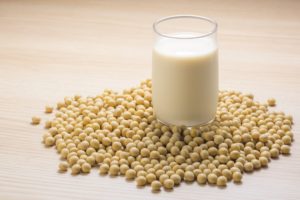 For healthy, strong muscles, you need more than a few workouts per week. In fact, those workouts might not have any of their desired effects if you’re not giving them one crucial thing: protein.
For healthy, strong muscles, you need more than a few workouts per week. In fact, those workouts might not have any of their desired effects if you’re not giving them one crucial thing: protein.
Protein is what allows your muscles to get strong and healthy, and eating enough of it is the only way they can adequately benefit. Even if you’re not working out, getting enough protein helps to maintain the muscle you do have.
Advertisement
Your muscle mass plays a significant role in overall health. Muscle helps improve durability so you can take some bumps along the way, it relieves stress on your joints, increases metabolism, and makes it easier to go about your daily life. After all, you want to be able to carry your groceries home and move things around your house when needed.
There are discrepancies about how much protein a person should eat, as well as where they should get it. After all, the best sources of protein come from animal products, yet the healthiest diets are typically those higher in plants. What should you make of this?
For starters, you should try to eat more than the current dietary guidelines of 0.8 grams per kilogram of body weight. Eating 1.2-1.5 g per kg of body weight is likely a better suggestion, according to findings that are backed up by research published in JAMDA.
Meat intake doesn’t need to take too much of a hit, either, as long as you include some plant-based proteins every day. Some research from JAMA Internal Medicine showed that swapping out small amounts of animal protein—and mostly processed red meats—and replacing them with plant-based proteins could cut the risk of early death by all causes.
Although more plants might be better for overall health, sticking to lean, unprocessed meats is likely safe if you don’t have an existing heart condition. Snacking on plant-based proteins or making the occasional meal swap may be sufficient enough to get all the benefits of a high-protein diet.
Advertisement
Some plant-based foods that you can gradually introduce into your diet include:
- Nuts
- Beans
- Lentils
- Whole grains
Instead of a radical shift in eating style, try slowly implementing these items into it. You could use beans to replace meats—think “Meatless Monday”—or oatmeal, yogurt, and nuts for breakfast instead of eggs and sausage.
Finding ways to include more protein—and a variety of protein—into your day can help you maintain strong and functional muscles—a key component of health aging.
